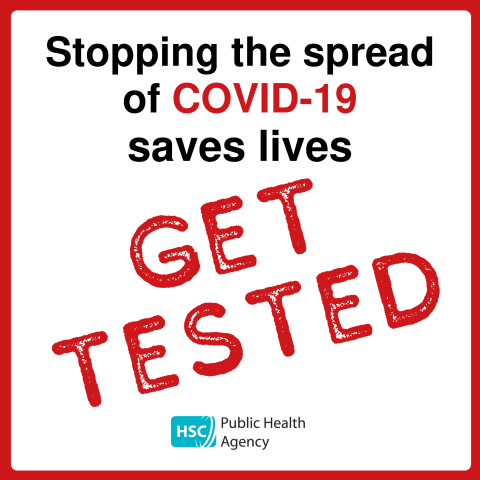Education Authority and Public Health Agency announce COVID-19 rapid testing roll out to all special schools in Northern Ireland.

The non-invasive saliva-based LAMP (Loop-mediated Isothermal Amplification) test is designed to find asymptomatic and pre-symptomatic cases so they can be isolated, along with their contacts, as quickly as possible, therefore reducing the risk of transmission of COVID-19 in schools.
The LAMP testing programme began with five pilot schools in February 2021. This has now been rolled out to all special schools and will run until June 2021.
The programme is sponsored by the Department of Health and the Department of Education.
The Education Authority (EA) and The Public Health Agency (PHA) are working in partnership with Queen’s University Belfast to deliver the testing programme to all special schools. A group of principals from the Special Schools Leadership Group are co-designing the programme and representing the views of the schools in the programme management structures.
Dr Joanne McClean, Consultant in Public Health Medicine with the PHA, said: “The sacrifices we have all made during this lockdown are making a difference, and infection rates have dropped significantly – that combined with the roll out of the vaccination programme provide many reasons to be hopeful, but testing and following the public health advice remains as important as ever if we are to have better times ahead.
“The roll out of testing across special schools will help find pre-symptomatic and asymptomatic cases who can then be advised to isolate at home to reduce the risk of spread in the school, so providing protection for others.”
Regular testing will continue to be important as the rollout of vaccination continues because, while the vaccine offers excellent individual protection from the virus, no vaccine is 100% effective so a proportion of vaccinated individuals may remain vulnerable. In addition, while the vaccine may stop a person becoming sick, it is possible that a vaccinated individual may still become infected and spread the infection without realising they have it. Finding and isolating people who test positive in a timely manner allows us to quickly provide advice and support to these individuals and anyone they may have been in contact with.
Dr McClean continued: “Regular testing is an additional measure to reduce the spread of COVID-19. It does not replace all the other measures that are in place to reduce transmission.
“COVID-19 is still a threat and we need everyone to play their part in helping to stop the virus spreading. Stay at home and reduce your contacts, maintain social distancing when possible, wash your hands regularly, wear a face covering when required and get tested if you display any symptoms of coronavirus even if you are taking part in regular testing programmes. If you receive a positive test result or have been identified as a close contact of a confirmed case, you will be contacted by the PHA’s Contact Tracing Service and will be required to self-isolate.
“The advice is simple, but it is there for a reason – to help keep us and those around us safe. Don’t take unnecessary risks, exercise common sense, and take every step available to help protect yourself, your loved ones and the community.”
Kim Scott, Assistant Director, Education Authority, said: “The LAMP rapid testing programme is completely voluntary, but EA would encourage all school staff, support staff and pupils to take part to reduce the spread of COVID-19. In special schools there is a high ratio of teachers to pupils and social distancing cannot be adhered to, because of the specialised hands on support pupils need. Weekly rapid testing will be a vital tool to keep special schools open and functioning effectively for the rest of the school year.
“The programme will give staff in special schools more confidence in providing face to face teaching and improve pupil attendance levels. The benefit children and families get from special school is very significant. There are a range of therapies that are only available in school, which support children’s access to educational provision. The routine of regular attendance at school is also a protective factor for many children.”
